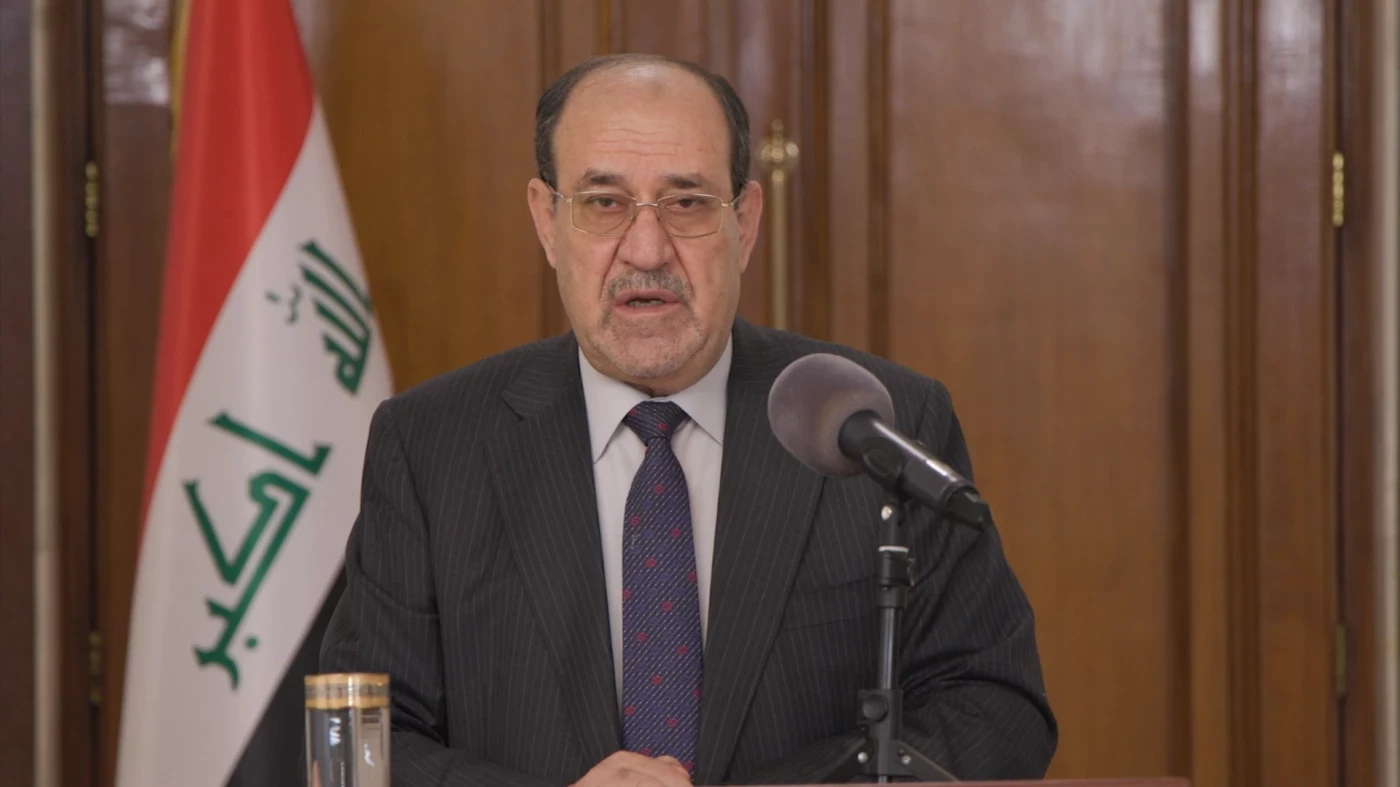ERBIL, Kurdistan Region of Iraq - Former Iraqi Prime Minister Nouri al-Maliki on Monday criticized the Sunni-majority provinces for suspending working hours in protest of the top court’s decision to suspend the implementation of the General Amnesty Law, and called for supporting the role of the judiciary.
Iraq's Federal Supreme Court last week issued a temporary ruling to suspend the implementation of the three controversial bills passed in the parliament in late January: The Personal Status Law amendments, the General Amnesty bill, and a bill to return real estate properties confiscated under the previous Ba’ath regime to original owners.
The suspension of the Amnesty law sparked major backlash from Sunni politicians, including the governors of Salahaddin, Nineveh, and Anbar provinces who declared suspending working hours in protest.
“Granting days off without returning to the state is unfortunate,” said Maliki, head of the State of Law Coalition, during a televised speech on Monday.
“We are not against the release of innocent people from prisons, but we want the prisoners to come out having learned from the mistakes they made and to return to society,” added the veteran Shiite politician, warning that “a state that is not governed by law is invaded by chaos and outlaws.”
The Amnesty law was among the main requests of the Sunni component upon the election of Prime Minister Mohammed Shia’ al-Sudani. The Sunnis believe that following the years of war since 2003 and after the so-called Islamic State rule, their community was among the most affected by unjust mass arrests and terrorism charge allegations, given that many of the insurgencies would originate from Sunni majority areas in the country.
Maliki said that it is necessary to support the rule of the judiciary, stressing that “one of the sources of strength of the judiciary is that it is independent, neutral, and free from pressure.”
He described the recent uproar as “unjustified”, adding “we do not reject the objection, but the objector must adopt legal procedures and not endanger the safety of society.”
The bill was passed through an agreement between Sunni and Shiite lawmakers in return for passing the Shiites’ highly-demanded amendments to the Personal Status Law. The passing of the General Amnesty sparked a lot of controversy in recent weeks, with many claiming that the law would release many who have been imprisoned on terrorism charges, causing security concerns.
A coalition of 10 lawmakers had filed legal complaints to the top court, calling for suspending the implementation of the bills, as they claimed that the voting procedures during the parliamentary session in which they were passed were “not sound.”
The Iraqi top court is set to consider the appeals against the three controversial laws on Tuesday.



 Facebook
Facebook
 LinkedIn
LinkedIn
 Telegram
Telegram
 X
X


